
BBC Sky at Night Magazine
Blast off! Blue Origin springs into action with all-female crew
The 31st excursion of the New Shephard rocket takes a crew of former astronomers and celebrities on a brief spaceflight
1 min |
June 2025

BBC Sky at Night Magazine
Strongest hints yet of life outside the Solar System
JWST points to a possible biosignature on planet K2-18b, but astronomers urge caution
1 min |
June 2025

BBC Sky at Night Magazine
Black hole wakes after decades-long nap
A giant black hole has suddenly come to life in a flurry of X-ray flashes
1 min |
June 2025

BBC Sky at Night Magazine
A weakening of the force
New data suggests that dark energy's pulling power is changing
1 min |
June 2025
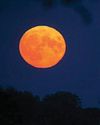
BBC Sky at Night Magazine
Demystifying the Moon illusion
An apparently supersized Moon low on the horizon fools the eye... but not the camera
3 min |
June 2025
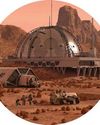
BBC Sky at Night Magazine
Out of this World and Into the Next
Where do we come from? Who are we? Where are we going? These are fundamental and profound questions that encompass the whole of human existence.
1 min |
June 2025

BBC Science Focus
New method could finally destroy forever chemicals'
These harmful chemicals found in your home have been linked to several types of cancer
1 min |
May 2025
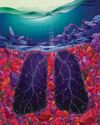
BBC Science Focus
The 'dark oxygen' debate isn't helping anyone
The mysterious appearance of oxygen on the ocean floor is fuelling curiosity and controversy
3 min |
May 2025
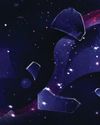
BBC Science Focus
Dark energy could be getting weaker
New discoveries suggest that the Universe isn't expanding as we thought. So is it time for us to go back to the drawing board?
3 min |
May 2025

BBC Science Focus
Here's what cosmetic ingredients you should really be using if you want to protect the planet
Consumers are right to be sensitive about what they put on their skin, but an emphasis on using ‘natural’ ingredients could be misleading
5 min |
May 2025
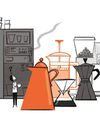
BBC Science Focus
The worst coffee types for your cholesterol levels
Your morning cup of Joe might pack an unexpected punch
1 min |
May 2025
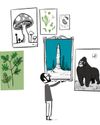
BBC Science Focus
Fossils reveal a whole new type of life
A strange giant cylindrical lifeform might not be a fungus after all
1 min |
May 2025

BBC Science Focus
SWEAT AND BEERS
The latest in exercise science suggests that maybe you can run off a hangover
3 min |
May 2025
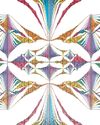
BBC Science Focus
Quantum butterfly
This intricate rainbow pattern represents the first sighting of Hofstadter’s butterfly. Spotted lurking between two layers of graphene, it was - up to this point — a theoretical ‘creature’ with wings made of self-repeating fractal patterns.
1 min |
May 2025
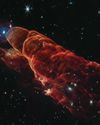
BBC Science Focus
The Cosmic Tornado
What you see here is a Herbig-Haro (HH) object – a bright, nebulous patch of space indicating a star is forming nearby.
1 min |
May 2025
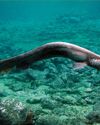
BBC Science Focus
THE FRILLED SHARK
In the dark waters of the deep sea, lurk many curious and enigmatic animals that few have seen.
2 min |
May 2025

BBC Science Focus
IS ARTIFICIAL INTELLIGENCE GIVING US FALSE MEMORIES?
You may have seen videos circulating online of Donald Trump and Elon Musk doing outlandish things - recreating scenes from the TV show Breaking Bad, for example.
1 min |
May 2025
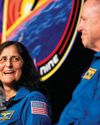
BBC Science Focus
NASA astronauts return to Earth after surprise space stay
The pair splashed down off the coast of Florida on 18 March after nine months in space
1 min |
May 2025
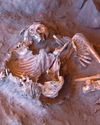
BBC Science Focus
7,000-year-old mummy DNA reveals a 'ghost' branch of humanity
Ancient remains have opened the door to a long-lost human lineage
2 min |
May 2025
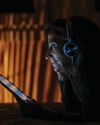
BBC Science Focus
Using a smartphone may reduce your dementia risk
New analysis shows that technology might provide cognitive benefits, despite bad press
4 min |
May 2025
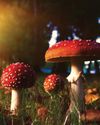
BBC Science Focus
Are fungi conscious?
New research on fungi suggests they could be demonstrating some form of intelligence, but not all experts are convinced
5 min |
May 2025
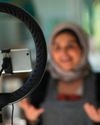
BBC Science Focus
TikTok influencers may be raising awareness about ADHD, but don't rely them for a diagnosis
Millions of TikTok users are watching influencers speak about their experiences of ADHD. But how useful is the information being shared?
4 min |
May 2025

BBC Science Focus
HOW HAS LIVING WITH A NARCISSIST AFFECTED ME?
Are you an empathic people-pleaser who prefers to stay out of the spotlight?
2 min |
May 2025

BBC Science Focus
5 of the Best Air Filters
Take a breath with devices that scrub pollen, pollution and other unwanted particles from your home
3 min |
May 2025
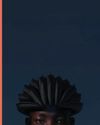
BBC Science Focus
Crash protection, with added convenience
Commuting safely by bike means finding something to do with your helmet when you reach your destination. A British company thinks you should simply deflate it
3 min |
May 2025
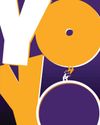
BBC Science Focus
HOW TO BREAK THE YO-YO DIET CYCLE
Research suggests your fat cells have a memory, hence any weight you lose always seems to find its way back to your body. So why is it so hard to make your fat cells forget?
10+ min |
May 2025
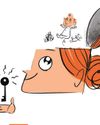
BBC Science Focus
Study makes 'baby amnesia' even more mysterious
New research sheds light on why adults don't remember being babies, but raises more questions than it answers
1 min |
May 2025
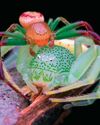
BBC Science Focus
Caught in the act
These two flower crab spiders have been caught copulating by Sandip Guha, who won the Macro category of the London Camera Exchange Photographer of the Year competition with this image.
1 min |
May 2025

BBC Science Focus
Happiness is... well, nobody's really sure
Explaining exactly what's going on in our brains when we experience joy remains frustratingly out of reach
3 min |
May 2025
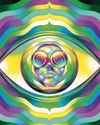
BBC Science Focus
YOU ARE FEELING VERY...HEALTHY
Forget the swinging pocket watches, scientists are now praising hypnotherapy as a powerful tool to fight mental and physical pain. Count back from five and we'll begin...
8 min |
